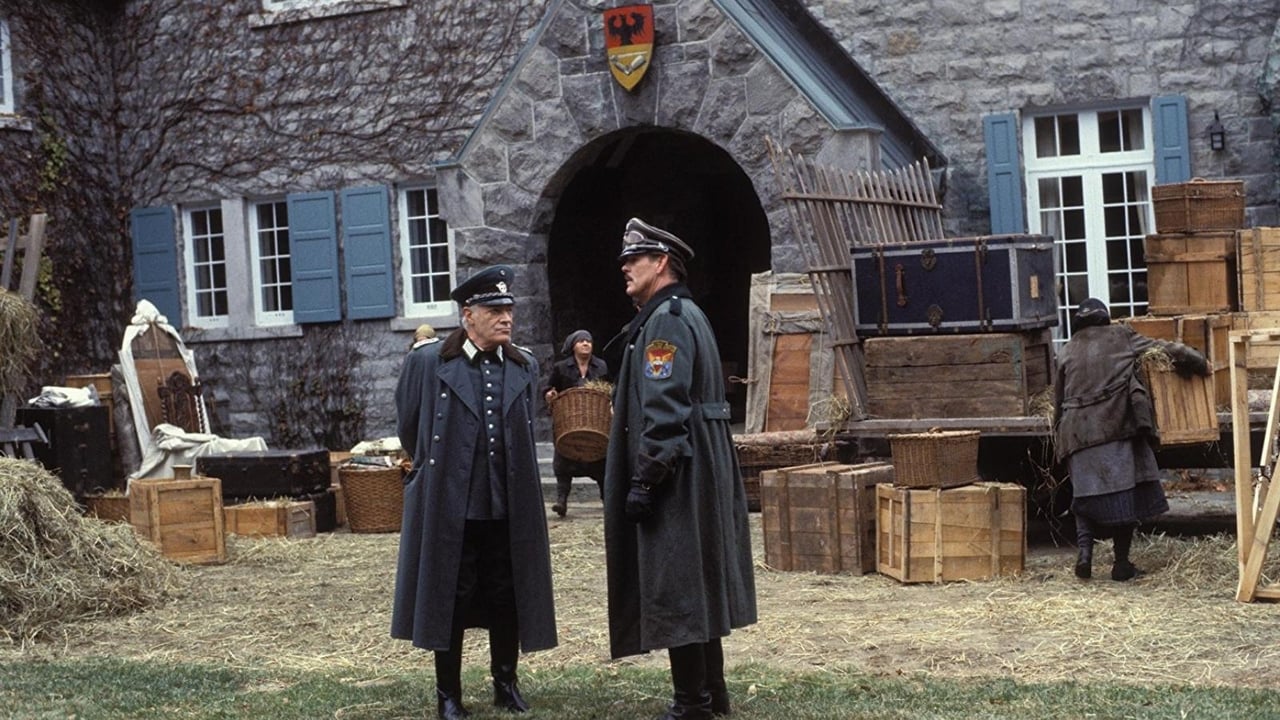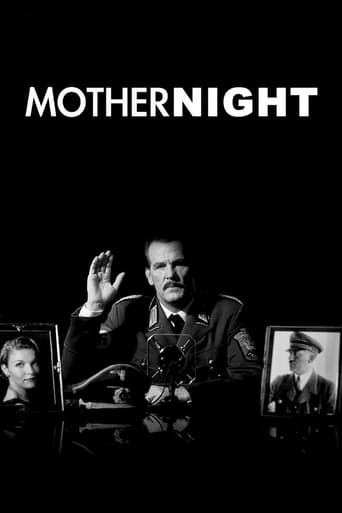

Too many fans seem to be blown away
... View MoreI gave this film a 9 out of 10, because it was exactly what I expected it to be.
... View MoreAll that we are seeing on the screen is happening with real people, real action sequences in the background, forcing the eye to watch as if we were there.
... View MoreThe plot isn't so bad, but the pace of storytelling is too slow which makes people bored. Certain moments are so obvious and unnecessary for the main plot. I would've fast-forwarded those moments if it was an online streaming. The ending looks like implying a sequel, not sure if this movie will get one
... View MoreGiven the track-record for adaptations of Vonnegut novels, I was pleasantly surprised at how faithful this film is to the original source material (with one glaring and near-fatal exception near the end). It is also handsomely-made and features fine performances from everyone involved, especially Nick Nolte. The problem is that the tone is all wrong. The power of Vonnegut's novel is its black humor, which is completely lacking here; in the novel, Howard W. Campbell's story, despite being rooted in WWII and the Holocaust, is a farce that ultimately brims over with moral outrage; here is it more of a arty tragedy.
... View MoreWhile always a fan of Nick Nolte's, I have been frustrated at times by his choice of roles. However, in his portrayal of Howard W. Campbell, Jr., Mr. Nolte has achieved, perhaps, his finest hour. This adaptation of Kurt Vonnegut's brilliant novel shines the light upon an age-old question: just how responsible for their actions are those who are "only following orders?" I believe Vonnegut supplies the answer in this story. If you're looking for a movie to really sink your teeth into, this is the one. At the time I saw it, I had remarked to my wife that I was tired of the garbage coming out of Hollywood; I'm glad I salvaged this one off the top of the pile - it deserved rescuing.
... View MoreI went in knowing this was an adaptation of a Vonnegut novel, but thought I would appreciate it anyway. From that, you might surmise that I'm not one of Mr. V's big fans, and you'd be right. Rubbing your face in high drama is what he's about, and I get enough of that in real life to suit me.But the storyline is an intriguing one, and I thought it would make a good two hours of escape. I will readily admit that it was flawlessly executed; even John Goodman, who is not usually my cup of tea, did his job very well. Nick Nolte especially gave an excellent accounting in a very difficult role.So why didn't I really like it? For the simple reason that it was depressing from start to finish. Yeah, I know, it was supposed to be.Well, I have many possible reasons for going to see a film, but getting bummed out is not one of them. I get enough of that in reality.So, even though it was really well done, I cannot recommend this film as being good entertainment value, unless your day has gone far too well and you need a bout of depression to offset it.
... View MoreAlthough I like Kurt Vonnegut, I'm not particularly interested in spy stories and I didn't know this one. The only reason I watched it was Nick Nolte, who is one of my favorite actors since I saw "Breakfast of Champions" and "Hotel Rwanda". But the film brought me a pleasant surprise. Of course Nolte was great, but so was the plot. There was relatively little political intrigue, and much more focus on the moral question: by reading his anti-Semitic radio commentaries with hidden secret messages to Americans, he in fact contributed to the general attitude of Germans (and, as it later turns out, Americans) towards Jews or Hitler. Which carries more weight, his service to his country or his unconscious contribution to anti-semitism? The dilemma is even more prominent as these words are never spoken, not even as narration. Howard Campbell Jr. (Nolte) is a person who learnt to hide his feelings so perfectly that he doesn't open up, not even in his memoirs. The inner conflict of such a character is almost impossible to portray - but with the help of excellent acting and photography, this film manages. There are other points to it, such as the humor or the ironical use of romantic clichés (like the song White Christmas), that make it real different from average American movies. I recommend it to everyone who is bored with Hollywood spy movies.
... View More